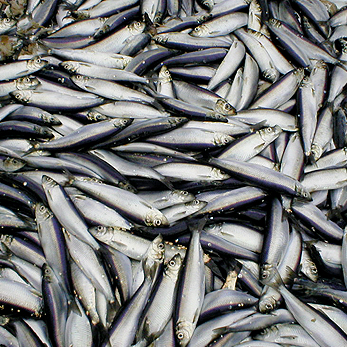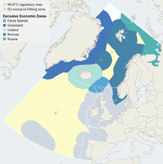Fishing is of high economic significance for some OSPAR countries. Iceland, Norway and the Russian Federation are among the world’s most important fishing nations. Fisheries products represent 20% of national GDP for the Faroe Islands and Greenland and over 90% of their exports. In the EU, fishing accounts for less than 1% of total GDP but is highly significant in some regions; Denmark, Spain, France and the UK are responsible for nearly 60% of the total EU commercial fisheries production.
Fisheries in the OSPAR area are regulated through a combination of different arrangements Figure 8.1. These include national policies and regulations, the EU Common Fisheries Policy, bilateral and multilateral agreements between countries with shared stocks, and measures adopted by the three regional fisheries management organisations: the North East Atlantic Fisheries Commission (NEAFC), the International Commission for Conservation of Atlantic Tunas (ICCAT), and the North Atlantic Salmon Conservation Organization (NASCO) Table 8.1.
The OSPAR Convention fully recognises the competence of these authorities to regulate fisheries. OSPAR informs these fisheries authorities when it considers that there are questions where action is needed to protect and conserve the North-East Atlantic in relation to fisheries. In 2008, OSPAR and NEAFC adopted a memorandum of understanding that detailed their roles in conserving marine biodiversity within their respective areas.


